UP TO THE MINUTE
A New Look at Construction Acquisitions - PODCAST TRANSCRIPT
June 25, 2025 at 5:00 p.m.Editor's note: The following is the transcript of a live interview with Paul Trombitas and Paul Giovannoni of FMI Corp. You can read the interview below, listen to the podcast or watch the recording.
Intro: Hello and welcome to Contractor Outlook newscast. This is Heidi Ellsworth with the Coffee Shops and we are here today to really talk about what is going on out in the industry and how do you know what's going on? Well, sometimes you have to depend on some of the experts out there who really know how to gather information and do the research. And I am so happy to say that we have a great, very special, I would say, relationship with our friends at FMI who do this every single day. So I am really excited to welcome Paul and Paul to our Contractor Outlook Newscast today. Welcome, gentlemen.
Paul Trombitas: Thank you, Heidi. Great to be here. Always a pleasure to speak with you and excited to have my colleague Paul Giovannoni on with us. And so, as a bit of background, Paul Trombitas with FMI and I lead our team that's focused on building product manufacturers and distributors. So we work with those firms on understanding what's happening in the market, trends, drivers, product changes. And my colleague, Paul Giovannoni, I'll turn it over to you for background.
Paul Giovannoni: Sure. Hi, Heidi. Yeah, so I'm a partner at FMI and I lead our private equity consulting services. So we work with private equity firms largely when they're making acquisitions within the broader construction space, helping them evaluate companies, helping them think about strategic growth, helping them understand operational improvement opportunities for those businesses. And of course, recently, the last couple of years, roofing has been a pretty hot topic.
Heidi J. Ellsworth: I tell you what, not since the nineties have we seen this kind of M&A and mergers. I'm telling you what, the roofing world has turned upside down these last couple of years, Paul, so I'm really excited to talk about that. Let's start out with, can you just talk about FMI a little bit? So, Paul Trombitas, could you maybe just take us on who FMI is? And then, let's talk a little bit about how you do what you do.
Paul Trombitas: Absolutely. So FMI, we have two sides of our business. We have an investment bank which focuses on M&A, so buy side, sale side representation, what you would think of as a traditional investment bank. And then, we have our management consulting side where we have three practices, so leadership or ganizational development strategy where Paul and I sit and then our performance practice. And what's unique about our business is the 70 plus years we've been in business, the only industry that we work in is construction. So our clients are general contractors, trade contractors, architects, engineers, building product manufacturers, any of the associations that touch the industry and then investors that are looking at the industry.
And so, when we think about the type of work that Paul and I do, it's really about getting insights from folks that are in the business and understanding the nuance in the marketplace. So, we have the benefit of the 70 years of clients working in the space, so we're able to leverage that to a great extent. And then, understanding who the right folks are to speak with. So if you're looking at food and bev, the plant manager, the facility managers. And you're looking at healthcare or education, it's the capital planning managers. And so, understanding those nuances.
And then, we also have our team that's in house that does our economic models. So that's how we get all of our market forecast. And of course, there's traditional secondary sources. Dodge is one that we look at, Construct Connect. So we, pull from a wide range of sources to really gather the right information needed to share the right insights with our clients. Paul, anything to add on that?
Paul Giovannoni: Yeah, I think when it comes to data, the data is always helpful. But what's really valuable to our clients is the context and the why behind it. And I think going back to what Paul mentioned, that 70 years of experience and when I think about our backgrounds, working within most of these firms, helping them with strategy, we understand the why behind the data, the requests, the needs to a deeper level. And I think that's really where our advantage is and how we help clients is having that deep understanding of their challenges having seen it multiple times in the past.
Heidi J. Ellsworth: I think that's so true. Because, people can have data, they can put results out there from surveys, different things, but to really understand the data and understand the market, I think that's one of the things that I've just really been impressed with all of you is your understanding of the markets that you're working in. And a lot of times you don't have that, right and you can't bring it down to, "Why should I care about this data?"
"Well, this is why and this is really what's happening." So, I love that.
Let's talk about one of the biggest acquisitions, this happened this year, that we have been on all kind of, wow. And that is the Beacon, QXO acquisition. Can you give us some insights on what's going on there, what you all saw in some of your research as that came about?
Paul Trombitas: It's a very interesting change in the industry, I'd say. When you look at Beacon, in last year, Beacon alone made six acquisitions that were only in the metal space and they weren't distributors. So, there was a mix of firm types that they had acquired. And so, they themselves were going through how they integrate properly a manufacturer into that landscape. And then with QXO, I think there was an initial perception that it was a highly fragmented market, but when you look at it in that roofing distribution space, there's really only three major firms.
Heidi J. Ellsworth: Yeah.
Paul Trombitas: And so, I think that fragmentation piece wasn't as big of a case and it really then turned to, "How do we leverage technology?"
And that's a big component that we're seeing, is these digital platforms, everything from configurator tools to full online storefronts. And I think it's growing, but there's still that... If you think about construction, right, there's the adoption curve. At the front end, you have the early movers. At the end, you have the laggards and I'd say about five steps behind is the construction industry. So we're a little slow to adopt in technology.
Heidi J. Ellsworth: True, true.
Paul Trombitas: And I think it is a really interesting shakeup. I think there's a lot of interest to see how they do integrate the AI, the technology into that space. But it does add a very unique dynamic, because you have ABC that's privately owned, Beacon now with QXO and that will be really interesting in the next two to three years. It's yet to be seen.
But I would add in the new layer that QXO made the request, if you will, to acquire GMS and that would add a whole nother layer of a consolidated industry from GMS. So talking with folks in industry, it certainly could be the buyer of the future, these massive consolidated firms and what implications that has, that'll be a hard one to pinpoint. But it certainly throws a very unique, similar to a Katerra, right, in the past where that was going to change the world. But I think there's certainly legs and some really strong power behind QXO. So we'll see what happens.
Heidi J. Ellsworth: Well and when you add SRS and Home Depot into that-
Paul Trombitas: That's right, Home Depot. It's a really interesting time to be in the industry. We have these unique market dynamics going on. You have these massive acquisitions and you have the bifurcation of, there's the small firms and then the really big firms and that middle is certainly getting squeezed.
Heidi J. Ellsworth: Yeah. Oh, definitely. And you see it every day. And you mentioned the metal manufacturing. I think that is really interesting, too, for what you said. I think we're going to see... It's just been interesting seeing all the M&A activity within the roofing industry overall. And we're going to talk more about that. But when we look at what's happening in metal, we're starting to see things with Cornerstone, Central States. We're just seeing a lot of activity there. Paul, you do an excellent report or your FMI does an excellent report for the Metal Construction Association. Talk a little bit about what you're seeing there and if you're looking at your crystal ball, what are some of the things we should be watching out for?
Paul Trombitas: Something that I found fascinating is, looking at, in building products alone, the number of M&A deals back to 2009, 2024, they were 406, so it's the highest it's been, I want to say, ever, at least since 2021. And so, in the second most acquisitions or M&A activity was in the roofing space. And so, when I look at metal in particular, Beacon went on a large run of acquiring metal businesses. Wholesome was very involved. Cornerstone with Mueller. Armstrong made two acquisitions into the metal space, certainly around the architectural side. Carlisle is always involved in something there. Tremco made the acquisition. And then you have other firms like Georgia Metals that it's private equity owned, but has acquired other entities itself.
So you have a very active marketplace in the metal space. And as it has grown over the last 10 years, it's really drawn a lot of attraction from not only the strategic buyers getting in and seeing it as an opportunity, but outside the industry investors like private equity. But then also, you have outside of the US a lot of interest from the Asian corporations to the European corporations to South American corporations. And, we have just seen a flood of interest in the market and wanting to get into the metal space, particularly metal [inaudible 00:11:27].
Heidi J. Ellsworth: Yeah.
Paul Trombitas: And I think we're going to see continued emphasis and investment in the space. And, I can't see where it's going to slow down just as a result of the number of inquiries we had and just the activity we've seen this year as well as last year and the momentum it's gained.
Heidi J. Ellsworth: That's interesting. And looking into 2026, because really that metal world with the sheet metal shops and what we're seeing out there is still just so many small companies, small regional companies or even just local, not even regional, that are out there. I agree, it seems like we're going to see that that's going to continue to bring people together just because metal isn't as easy to ship. And so, they're looking for easier ways to deliver the product. And that's a whole different topic that we could talk about. How is metal roofing and metal siding being delivered? How's that going to change in the future, I think is really something that we're going to see a lot of changes in, too.
When we are talking about construction space overall for our contractors, I think we have to look at the history in other areas outside of roofing and metal, but now what's happened this year with really that focus? So Paul, when you are talking about private equity in the construction space, what are you seeing and what's the attraction really to all the money that is coming in and all the consolidation?
Paul Giovannoni: Yeah. Well, it's interesting, because like Paul mentioned, there's been... When we look at the acquisition activity, over the last 5 to 10 years, you've seen it really ramp up in the broader construction market. It's always been present and there's always been certain funds, investors who had interest in the space, but it seems like it's steamrolling and gaining momentum. And as funds see other funds become successful with exits in the space, they're becoming more comfortable.
Historically, there was a perception that the construction industry was all cyclical and highly volatile. And I think some of that is based off of what we saw with the Great Recession and just how severe that was, but that was really an anomaly. But what we're seeing is private equity funds becoming more comfortable in the space, because they realize that it's not all cyclical and it's not all... The greatest example of that is when you look at roofing and you look at the service and maintenance side and re-roof side of the market, which is really the biggest part of the market and about 70% of the market opportunity is in those two areas. They're not cyclical. They performed well during the Great Recession. They performed well during COVID.
And so, they've realized that there's spaces in the industry where there isn't cyclicality. And so, they're focusing on those areas. And at the same time, as they've realized that, they've realized it's highly fragmented with a lot of family-owned businesses, which is really attractive. They've realized that with those family-owned businesses, there's a lot of opportunity for improvement both operationally through technology and through just growth through acquisition and add-ons. And so, through all of that, they become more and more comfortable in our space. And it is just, again, as people have success, others are going to join in just like with anything. And we're even seeing them start to get interested in union firms, which you go back five years and that's taboo with bonding requirements.
Heidi J. Ellsworth: Right.
Paul Giovannoni: And so, it is a highly active space and I don't see an end in sight broadly. And then in roofing, it is the hot area right now.
Heidi J. Ellsworth: When I'm talking to some of the private equity groups, a number of them reference HVAC as having been the place that a lot of this started, where they were able to see how the roll-ups work. And I love it as they talk about innings. They use that as an example. They're kind of in the seventh inning in HVAC when they're in the second or third inning when it comes to roofing, just starting. To your point, Paul, when you were saying they're getting comfortable, they're even looking at unions and different things, do you see some correlation between the HVAC industry and then them looking at roofing and moving this direction? Do you see any correlation there?
Paul Giovannoni: Yeah. And the innings metaphor is always the one that's used. Being the dad of a 12-year-old who loves baseball, it makes sense and resonates with me. But if you think about HVAC, yeah, that's sixth, seventh inning. We're starting to see a lot of re-trades for the second and third time. And if I were related to roofing, I think in the residential space, we're probably in the fourth or fifth inning. In the industrial space, we're probably more in the third. So, it hasn't gotten accepted as much. And then, if we're even thinking about the storm side versus more the retail consumer side of roofing, that's probably even a little earlier in the broader roofing space.
But, to my earlier point about seeing the recurring and reoccurring nature of opportunity, that's where they've really drawn the relationship to HVAC, is because on the HVAC side, the service and maintenance portions of those businesses are what's really attractive. And they see the same similarities with roofing as being non-deferral. Once it breaks and it's 102 degrees in Raleigh, North Carolina, you're going to get your HVAC fixed. And we're in hurricane season and it starts raining and we have those issues, you're going to get your roof fixed.
Heidi J. Ellsworth: Right.
Paul Giovannoni: And so, they've seen that relationship and that's why they've gotten comfortable with roofing and are really active in it as well as, like I mentioned, the fragmentation is just as great in roofing as it is in HVAC which allows for that roll-up and that ability to scale these businesses into one platform and then trade it again.
Heidi J. Ellsworth: Which kind of takes us also that same, when you're looking at it, when we're looking at the sheet metal shops, the very local metal manufacturers. Also, very small. Some of them do roofing, some of them don't. A lot of them are just bending metal for HVAC, for roofing, for siding, all of that.
And another industry that I'm really interested in, too, is siding. Because siding has never really... Just in looking at it and if there's any siding contractors out there, please don't take this the wrong way, but you don't even see as much organization. Really, in roofing, you have the National Roofing Contractors Association, you have a lot of regional and local associations. You don't see that as much on the siding side of it. But yet, there are so many siding contractors out there. I'm just wondering, do you see that continuing to push through to some of these even trades that are not as organized when it comes to private equity or do you see cross... One of the things I've always wondered is, why aren't we seeing more roofing, siding contractors? I know a lot of them do do that, but any trends that direction, Paul?
Paul Giovannoni: Yeah, you hit on one of the big opportunities that we see with private equity in the construction industry for the next iteration of roofing, the next iteration of HVAC and I would go broader than siding and really label it exterior services.
Heidi J. Ellsworth: Okay. Yeah.
Paul Giovannoni: Because on the residential side, yeah, it's siding, but it's also brick repair. And then, if you move to the commercial side, it is waterproofing and masonry and concrete repair. But, we're seeing this move for roofing contractors and roofing contractor platforms that are private equity held to move down the building to the walls basically. That's siding and that's also windows.
Heidi J. Ellsworth: Yeah.
Paul Giovannoni: So, all things, kind of the side of the box. But we are seeing that migration. We're seeing those exterior services firms become their own standalone platforms. And then, the private equity firms have an interest in moving into roofing. Or we're seeing roofing platforms moving into siding and exterior services. Huron Capital has a platform that's doing just that. I believe it's called Rampart. But yes, that market is, I think, the next opportunity, because it is highly fragmented. It is non-deferrable. So, it follows a lot of those same great traits. And there's that opportunity to really grow and improve these businesses through professionalizing them.
Heidi J. Ellsworth: Yeah, exactly. And I love what you're talking about with the building envelope or that exterior contractor. We're seeing that a lot. And it goes beyond even that one structure, right, when you look at the outdoor space, the different types of buildings, the pergolas, the outdoor living, the pool and spa contractors. There is so much going on in that market, also, especially since COVID, as people continue to put that money back into their homes to improve their space. It seems like that continues to grow and that's one of those areas that is not stopping.
Paul Trombitas: I'd say, also, Heidi, [inaudible 00:21:56] just released a really great white paper on exterior services for private equity.
Heidi J. Ellsworth: I love it.
Paul Trombitas: [inaudible 00:22:07]
Heidi J. Ellsworth: Okay, we're going to need to get that, because I want to see it.
Paul Giovannoni: I think the one thing that is just a mindset shift that I've seen is historically it's been called business services, this broader contractor space by private equities, business services or industrials. But the pivot has been made to where they're now called essential services. And, I think that really resonates to thinking about how non-deferrable they are, how non-volatile they are. They're not cyclical. All of these different services in our industry are considered essential and that's what's driving the demand for them, the investment demand from private equity.
Heidi J. Ellsworth: I really am intrigued as I look at that whole home improvement space, the different directions, that as roofing moves into more that home improvement space of windows and you brought that up. Because the window space has been a little bit consolidated a lot more dealer models in a lot different way. But now, it's all merging together. And so, it's interesting, because roofing just hasn't had a dealer type model. But now, people are trying to look at that. As you see all these different models coming together through these acquisitions, how is that working or do you have any insights around that?
Paul Giovannoni: Yeah, I think if we're talking about a multi-trade model or a roofer's doing windows and roofer's doing siding, I think they're seeing the opportunity for cross-sale. And cross-sale, the ability for greater supply chain efficiency and leveraging relationships. And so, I think they're gaining a lot of traction with that personal experience. We just had all new windows put in our house and we actually went with a roofing contractor to do it. We knew the roofing contractor had a great reputation. They're a local firm and they started an exteriors business and they do windows as part of that. And so, we went with them because of their reputation in the roofing space. They happened to be an FMI client as well. But they knocked out the ballpark. And so, I think it's that cross-sale, the ability to leverage a great brand is really helping them.
Heidi J. Ellsworth: Yeah, we talk about that a lot on our podcasts, our webinars. We talk about diversifying your business, being able to keep that customer. What's the next thing instead of just a roof? And then, I really think there was a lot in the past where people would go in, if they did siding, they would say, "Okay, the siting is done, move on."
Now they can say, "Oh, how's your roof? How's your windows? What's going on there?" And even looking at the outdoor space, "Are you thinking about updating your garage or doing different things with your shed?"
I think we're seeing a lot of that. And so, I guess my last question is, as we're looking at this and I love the fact that you came out with a report on exteriors, because we are seeing the exact same thing, that's growing. Where are you hearing with all the research and the rumblings, what's kind of the next trade? What's the next big thing that you are really seeing a lot of research being done on and that the investors M&A may be looking at, whether that's distribution, obviously contractors, we're seeing that, but then also in different trades out there?
Paul Giovannoni: So obviously, I think the biggest one and the nearest term opportunity, is exterior services. And that's residential, non-residential, even parking garages. Seeing that as that's the next opportunity. I think then you see any of the services around automation, whether that's home automation, commercial, non-residential automation, industrial automation. I see a lot of activity around that. And then, an interesting space is around perimeter security, both the electronic, I think access controls in the simplest format, video cameras, but it's also fencing. And so, we're seeing a lot of interest in the fencing market for installers, which before, we never saw that.
And we just actually were helping a private equity firm that was looking at a deal and it became what they call a frothy deal, because there were so many active participants in trying to win the opportunity to buy this company, that the multiples for it became much higher than anyone would ever anticipate, because it was of such great interest.
So I think those are a couple of them. We're also just seeing a lot of interest in engineering services for the buildings, roofing consultants will be a part of that. And then, we're seeing-
Heidi J. Ellsworth: That's interesting.
Paul Giovannoni: ... [inaudible 00:27:19] data centers is just top of mind for everyone.
Heidi J. Ellsworth: Well, you said, also, about smart homes. Smart homes, smart buildings. There is going to be a need and I'm sure there's lots of companies out there who are already doing this, who can come in and can install all the different electronics. And is that what you're talking about when you're talking about automation and getting-
Paul Giovannoni: Yes.
Heidi J. Ellsworth: Because, you're seeing that where you're doing everything from your phone, but someone has to set it up.
Paul Giovannoni: Well, somebody has to set it up and somebody has to get it all to talk to each other. Because I, probably on my phone, have five or six different apps for different systems in my house, whether it's the Ring camera or the Train thermostats or ADT.
Heidi J. Ellsworth: Right.
Paul Giovannoni: I would love to have just one app. Get it all to talk to each other. So yeah, there's a significant opportunity there, integrators.
Heidi J. Ellsworth: I have to tell you, we could go on and on. I find this fascinating. Thank you both so much. This is so interesting. Any last thoughts? Any last things that you want to share with the audience around M&A and what's happening in specifically metal roofing, where the coffee shops are living starting with you, Paul Trombitas?
Paul Trombitas: One of the things I would just echo is, we've done a number of studies recently on the fencing space. And that has really become an interest for the private equity firms. And we've seen a number of deals just in the last two years. And it's from the installer dealers to the distributors. And it goes both on the residential side, when we talk about the integration of multiple trades, if you will. So being able to do the fencing, but also the railing and the decking and additional outdoor living.
Particularly from COVID, we now have the extension of outdoor living, right? [inaudible 00:29:19] decking and that has been a huge part of a growth area. And then on the non-res side, the high security or perimeter, high speed gates, all the electronics and AI that's been added into that and it's now not only on the data centers, but it's going to smaller facilities, warehouses, institutional. And so, that's become a really big space as well and very attractive. So I would just say that's an area we're seeing is working with the building product manufacturers as well.
Heidi J. Ellsworth: So interesting, fencing, I've been hearing the same thing. It's crazy. And definitely on the outdoor living space, that is just hot right now. And a lot of the different trades can get into it. That's the thing. It's something they can diversify into with not that much investment. And so, it's really, really fun to watch.
Well, gentlemen, thank you so much. This has been so interesting. This Contractor Outlook newscast, I tell you what, you nailed it. This was awesome. Thank you so much.
Paul Trombitas: Thank you. Always a pleasure, Heidi.
Outro: Always great. Thank you all for listening. Please check out all of our Contractor Outlook Newscasts on all the Coffee Shops. You can find them there. This is the kind of information that goes across the trades that is for everyone to really see what's happening out there, whether it's in mergers and acquisitions or weather or politics or advocacy, you name it, we talk about it. So also, be sure to check out the FMI directory on Roofer's Coffee Shop and Metal Coffee Shop and see what they're doing. Because their research and you'll hear, because we have more research coming out, we try to get that out all the time. It's so interesting and so great for your business.
So, please also follow all of our podcasts on Cross the Coffee Shops. You'll be able to subscribe and set those notifications on your favorite podcast channel so you don't miss a single episode. We'll be seeing you next time on Contractor Outlook newscast.
Recommended For You
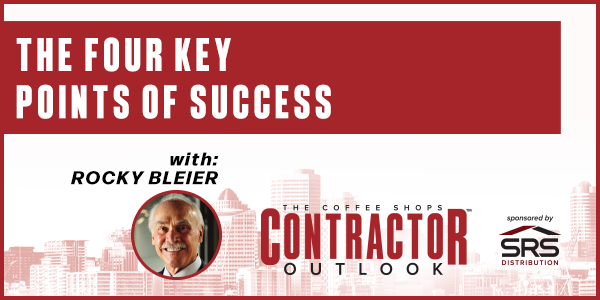
The Four Key Points of Success - PODCAST TRANSCRIPT
Read More ...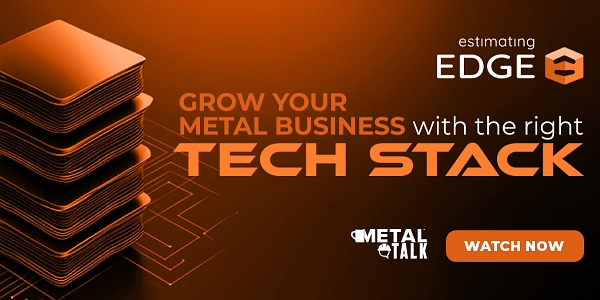
Grow Your Metal Business with the Right Tech Stack - PODCAST TRANSCRIPT
Read More ...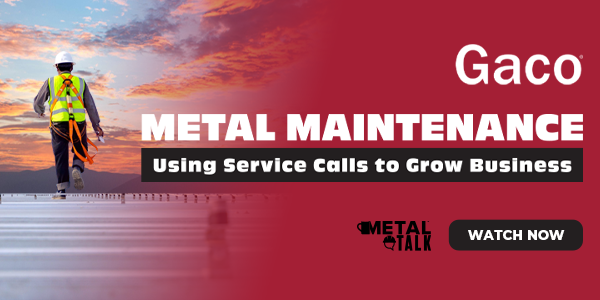
Metal Maintenance: Using Service Calls to Grow Business - PODCAST TRANSCRIPT
Read More ...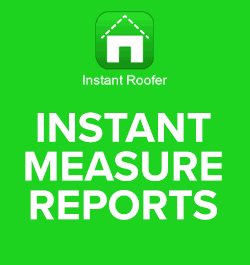
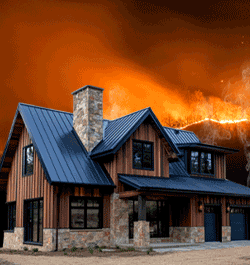


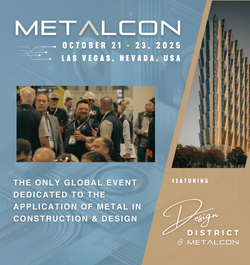
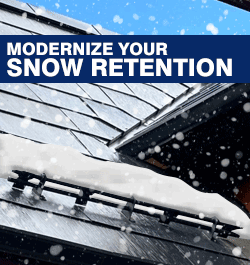






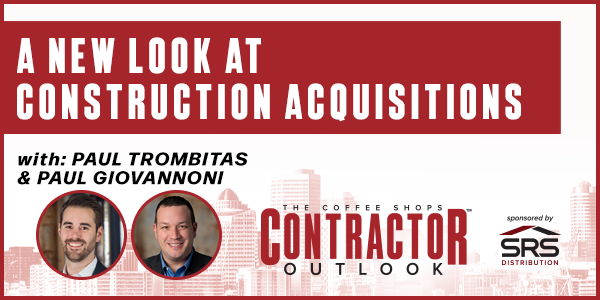



Comments
Leave a Reply
Have an account? Login to leave a comment!
Sign In